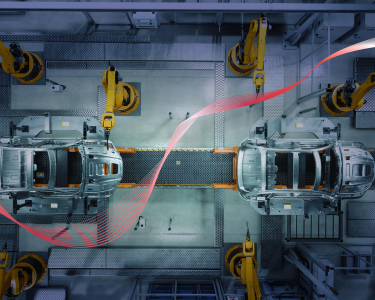The current era of automation has its roots in the Industrial Revolution in the middle of the 20th century. Having befriended this amazing technology decades ago, we are almost masters of automation now. In short, we can automate pretty much anything and everything. Great, right? Maybe Not! Because like medicines which become dangerous when ‘overdosed’, the results can be disastrous for your business when you ‘over-automate’.
Is Over-Automation Even Real?
While we have been dealing with automation for close to a century now, over-automation entered the discussion only a few years back. Why do you think that is? The most logical reason is the sheer scale of technological evolution. The systems, resources, investments, understanding, and expertise back then were not as powerful as what we have now. In the last few years, we have managed to ‘automate with autonomy’ processes and functions that were previously perceived as not suitable for automation.
Being handed such a powerful set of tools has tempted enterprises to automate their businesses without any consideration for human factors. The result is complex processes, complex systems, poor CSAT, poor EX, inefficiency, increased costs, and more.
An example of over-automation would be customer service without an agent in the loop. Complex and sensitive issues need agent intervention; customers need to have a human connection. Creating an endless loop of automated results will significantly hamper the customer experience. Another example can be automated quality control. Without human insight, the system can miss subtle checks. End-to-end marketing automation is also a popular trend that, if not done right, can backfire heavily.
So yes, over-automation is real, and in fact, it is easier to over-automate than to automate efficiently. The differentiating factor will be your approach to automation.
Automation is for Efficiency
Automation as a solution responds to your needs. It is not a one-stop shop for your business problems. Businesses need to understand that automation increases the efficiency and productivity of a process or processes. It will not fix them. A faulty process will remain faulty even after automation (if not done correctly). It might interest you to know that in any journey for automation, actual automation is not the first step. It is, in fact, one of the final steps. Automation is a very intricate process, and the success of your implementation will depend on how well you execute it.
When you decide to onboard automation, you need to have a clear understanding of your as-is processes and their desired to-be state. This initial process mapping helps experts to plan the entire journey efficiently. Some of the key steps involved are:
- Understand the business goals for onboarding automation
- As-Is process mapping to understand the existing processes, their impact on different functions/users
- Creating a new streamlined process flow to achieve the desired to-be state
- Determining the extent of automation needed to achieve the business goals
- Re-designing / upgrading processes and systems to eliminate unnecessary steps and handovers, as per the new process flow
- Automating the streamlined process flow
- Maintaining and monitoring to ensure efficiency and accuracy
Automation demands a thorough understanding of your business, its processes, and its impact. Diving into automation without any clarity on your business needs and goals will lead to inefficient results and, therefore, poor ROI. Remember, when it comes to automation, “The more, the better” does not work. Automation is like Salt. It is good only when added to taste. Any more or any less will leave your dish, in this case your business, unsavory.












